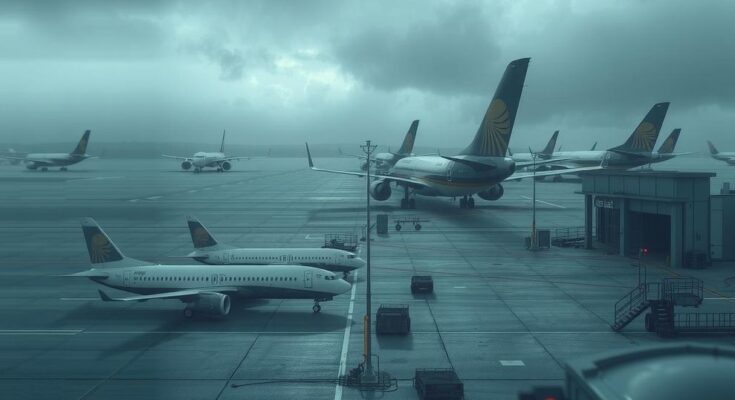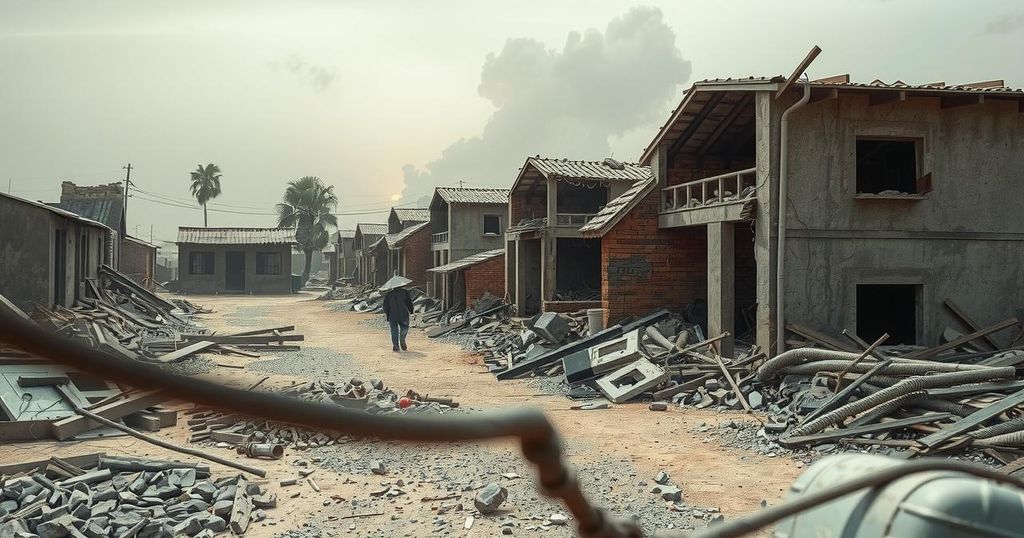The situation in Ethiopia’s Tigray region remains unstable with fears of renewed violence due to splits within the Tigray People’s Liberation Front. Recently, dissident factions have captured key locations, creating tensions within Tigray’s interim administration. The ongoing discord between Ethiopia and Eritrea adds to these complexities, risking a humanitarian disaster in the region.
Recent reports indicate that the situation in Ethiopia’s Tigray region remains unstable, with canceled flights and concerns over potential renewed violence. This unrest is attributed to the internal division within the Tigray People’s Liberation Front (TPLF). The TPLF had previously engaged in a two-year conflict against Ethiopia’s federal army and currently manages Tigray’s interim administration post-war.
Eritrean forces had historically crossed into Tigray, supporting Ethiopia’s federal army against the TPLF during the conflict. This situation escalated after a peace agreement was signed in November 2022, which created tensions between Ethiopia and Eritrea, particularly as Eritrea was not a party to the negotiations.
Fears regarding the potential for conflict are largely linked to a split within the TPLF. This division resulted in one faction receiving backing from the federal government while the other remains in opposition. Recently, on March 11, a dissident faction captured the town of Adigrat, accusing Tigray’s leadership of betraying local interests. The interim administration, conversely, asserts that these dissidents are colluding with Eritrean entities.
Following the seizure of Adigrat, further incidents were reported, including the capture of critical regional offices and a radio station in Mekelle, the Tigray capital. Getachew Reda, head of Tigray’s interim administration, has sought Ethiopian government’s assistance against dissident factions, firmly denying any Eritrean affiliations among them.
Getachew emphasizes the growing discord between Ethiopia and Eritrea, cautioning that the Tigrayan populace may once again fall victim to a conflict they do not endorse. He has voiced suspicions about external actors meddling in Tigray’s affairs, particularly Eritrea, indicating their potential interest in the region’s instability.
Reports suggest that renewed violence could endanger the historic reconciliation efforts initiated by Ethiopian Prime Minister Abiy Ahmed, which earned him the Nobel Peace Prize in 2019. Such a conflict would exacerbate humanitarian crises in a region already grappling with challenges from internal disturbances in neighboring countries such as Sudan and Somalia, further complicating aid efforts for affected populations.
The current situation in Ethiopia’s Tigray region reflects deep divisions within the Tigray People’s Liberation Front and raises fears of renewed conflict, potentially destabilizing the fragile peace and worsening humanitarian conditions in the region. As factions within the TPLF clash and external influences loom, the necessity for support from the Ethiopian government is underscored, highlighting the ongoing complexities faced by Tigrayan citizens.
Original Source: www.aciafrica.org




